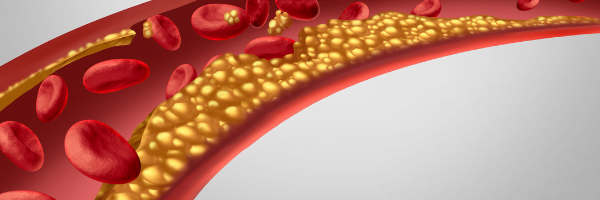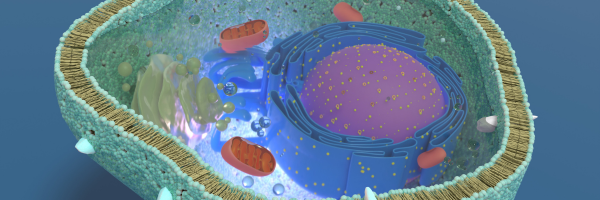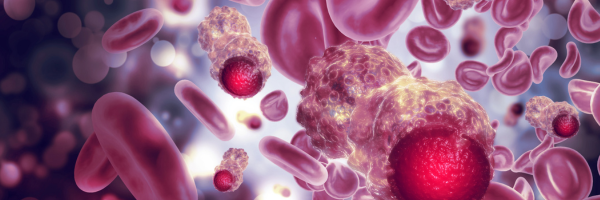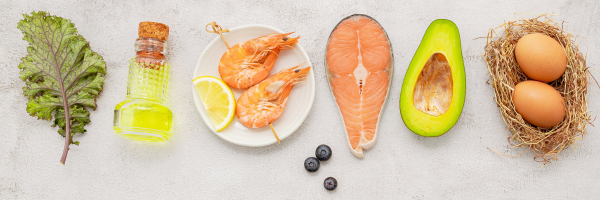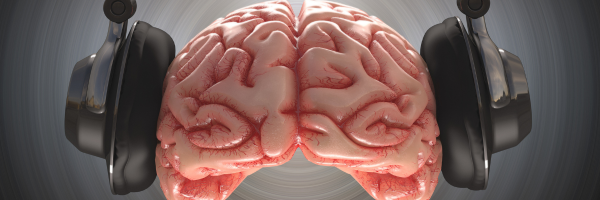Founder and Medical Director
 In private practice since 1994, Dr Rollins is Board Certified with the American Board of Family Practice and has been certified in Advanced Cardiac Life Support and Advanced Trauma Life Support. With these credentials and years of experience in a rural practice he is well qualified in managing complex medical issues as well as handling serious medical emergencies and injuries.
In private practice since 1994, Dr Rollins is Board Certified with the American Board of Family Practice and has been certified in Advanced Cardiac Life Support and Advanced Trauma Life Support. With these credentials and years of experience in a rural practice he is well qualified in managing complex medical issues as well as handling serious medical emergencies and injuries.
As the first physician in Western Colorado to be Board Certified with the American Board of Anti-Aging and Regenerative Medicine, Dr Rollins also has extensive training and experience with bioidentical hormone replacement for men and women, thyroid and adrenal disorders, fibromyalgia, chronic fatigue, weight loss and healthy aging.
In 2006 Dr. Rollins opened AdvantAge Integrative Medicine in Grand Junction in order to bring these specialty services to Western Colorado. In 2008 he founded the Integrative Medicine Center of Western Colorado.
Dr Rollins is an active educator with a passion for learning and teaching. He can be found doing weekly educational seminars, newspaper columns and television news commentary on local network affiliates. He is a clinical faculty member at the University of Colorado School of Medicine, hosting medical students for their one month long family medicine training.
In 2004 Dr. Rollins was chosen for “Colorado Family Physician of the Year.” This prestigious award is given annually to only one of over 1,800 family physicians. The recipient is chosen by the Board of the Colorado Chapter of the American Academy of Family Physicians and is based on their expertise and commitment to family medicine.
He is a member of the American College for the Advancement of Medicine (ACAM). Having passed the “gold standard” examination from ACAM, he is “Certified in Chelation Therapy“. Dr. Rollins has extensive background in Occupational Medicine, caring for work related injuries, and is certified as “preferred provider” with Pinnacol Assurance, Colorado’s largest workers’ compensation insurance company. He serves as a medical director for HopeWest Hospice in Plateau Valley and Debeque.
After graduating from the University of Kansas School Of Medicine, he then finished his residency training in Family Practice at St. Mary’s Hospital in Grand Junction. He opened his private practice in Collbran, Colo. in 1994 where he and his partner provide full service family practice care while providing 24 hr / day emergency coverage.
An avid health enthusiast himself Scott “walks the talk” spending his personal life enjoying time with his wife and two boys, cooking and eating healthy foods, working in his family’s organic garden, taking his ritual morning walk, hiking, skiing or just relaxing playing guitar and piano.
Latest Articles From Dr. Rollins
The Lipid Highway
Particles, Payloads, and Why Counting Trucks Matters More Than We Thought For most of modern medicine, cholesterol has been treated like a suspicious substance sneaking through the bloodstream – greasy, malevolent, and best arrested on sight. This is unfortunate, because cholesterol is not only innocent, it’s indispensable. It’s so important our body recycles it. Without it, you don’t get hormones, cell membranes, bile acids, or a functioning brain. You also don’t get very far in evolutionary history. The real problem, as it turns out, was never cholesterol. The problem was that we were looking at the cargo instead of the traffic. The cholesterol hypothesis turns out to be more myth than medicine. Blood is a lipid highway. Lipoproteins are vehicles. Cholesterol and triglycerides are cargo. Cardiovascular disease, when…
Mitochondria – The Small, Smoldering Power Plants Inside You
A Slightly Irreverent Field Guide to Cellular Energy If you zoomed in far enough, past skin, past muscle, past internal organs and all the way into your cells, you’d find a city of tiny power plants humming along in the dark. These are mitochondria. They do not care about your emails. They do not care about your cholesterol score. They only care about one thing: ATP ATP (adenosine triphosphate) is the spendable currency of biology. It pays for muscle contraction, neurotransmitters, immune surveillance, hormone synthesis, and the quiet dignity of staying alive. When ATP flows, you feel capable. When it falters, you feel like someone unplugged your soul. Let’s step inside the machine. The Engine Room Where Mitochondria Make Energy Mitochondria sit inside your cells like coiled red…
How French Fries Wreck People
French fries have an image problem. They sit in the cultural dock like repeat offenders – greasy, addictive, and somehow responsible for everything from metabolic syndrome to the collapse of Western civilization. The potato, the poor innocent tuber, has been convicted without a fair trial. But here’s the inconvenient truth: it’s not the potato. It’s the oil. And more specifically, it’s the type of oil and what we’ve done to the oil. If you could interview a French fry, it would probably say, “I was fine until the oil went bad.” Once upon a time, fries were not the villain. There was a time, not that long ago, when people ate fried potatoes regularly and didn’t need a recovery day afterward. Belgian fries cooked in beef tallow. American…
Long Covid – When the Lights Stay On but the Power Is Gone
Mitochondria, Meaning, and the Long Goodbye of Viral Illness Long after the fever breaks and the test turns negative, many people discover that something essential never came back online. The body is present. The labs look acceptable. The doctors are polite. And yet energy – real energy, the kind that lets you think clearly, walk uphill, or feel joy without planning it – remains stubbornly unavailable. This is the strange aftermath of post-viral illness, now most visible under the banner of Long COVID but familiar to clinicians who have followed patients through Epstein–Barr, Lyme, influenza, and other infections that refuse to leave quietly. These syndromes are not defined by a single symptom but by a shared absence of vitality without explanation. A growing body of research now suggests…
The Quiet Power of Massage
Modern medicine is spectacular at emergencies. It can replace hips, restart hearts, and peer into the body with machines that would have looked like witchcraft a century ago. Yet it remains strangely awkward around one of the most ancient, effective, and low-tech healing tools humans have ever known: touch. Massage therapy, despite being practiced in nearly every culture for thousands of years, is still treated as indulgence – something you do on vacation, or after you’ve “earned it.” This is a mistake. Regular massage is not a spa accessory. It is a neurological intervention, an immune modulator, a circulatory assist, and a stress-biology reset button – all delivered through the skin, the largest sensory organ we have. If the body were a novel, massage would be the editor…
We Saved Money on Dinner and Spent It on Doctors
There was a time – recent enough that your grandparents could still complain about it – when Americans spent a ridiculous amount of money on food. Not truffle oil money. Not chia-seed pudding money. Just… food. Real food. Flour, eggs, vegetables that looked like vegetables, meat that once had opinions. Back then, food took up nearly a quarter of the household budget. A quarter. Imagine that now. You’d have to refinance your house just to buy an apple that hadn’t been in a factory relationship with corn syrup. Healthcare, on the other hand, was modest. A doctor’s visit didn’t require a second opinion from your accountant. Insurance was something you bought for your car, not a philosophy you argued about at dinner parties. Then something very American happened. …
When the Cancer Scan Is Clean but the Blood Isn’t
Cultivating the Biology of Cancer Remission There is a new kind of limbo in oncology. It did not exist twenty years ago. It arrived with molecular surveillance. It lives in the space between what we can see and what we can measure. The cancer is in “remission”. Then a tumor-informed circulating tumor DNA test turns positive. Or a circulating tumor cell test remains positive. The PET scan, however, is pristine. You’re tumor free, but not cancer free. The radiologist shrugs politely. The oncologist says, “We’ll repeat imaging in a few months.” And so the patient goes home. And waits. This moment is medically rational and psychologically devastating. We can’t see a tumor. We can’t target what we can’t see. But biologically, this is not neutral territory. This is…
The New Dietary Guidelines And Why They Still Point You Toward Real Food
Why the New Guidelines Caused Confusion Every few years, new dietary guidelines are released and a familiar wave of anxiety follows. This time, the emphasis on protein has left many people wondering whether everything they’ve learned about healthy eating has suddenly been overturned. Questions come quickly: Does this mean I should eat more meat? Is plant-based eating outdated? Have vegetables been quietly demoted? The short answer is no. The longer, more accurate answer is that the guidelines haven’t changed direction nearly as much as the headlines suggest. What the Guidelines Are Actually Saying When read carefully, the guidelines continue to emphasize whole, minimally processed foods as the foundation of good health. They encourage adequate protein intake, especially for aging adults, but they do not prescribe meat as the…
Keys to Great Health
“Before you heal someone, ask him if he’s willing to give up the things that made him sick.” —Hippocrates (Who, it should be noted, did not own a microwave.) The Long, Unsexy Truth About Health Health does not arrive on a white horse. It does not burst through the door yelling, “Surprise! You’re cured!” And it definitely does not come with free shipping. There is no secret handshake. No magic smoothie. No supplement discovered in the Peruvian rainforest that absolves you of yesterday’s decisions. Health, like trust or wisdom or a decent sourdough starter, is built slowly – through repetition, patience, and the occasional failure followed by a better choice the next day. Great health is not achieved by heroics. It’s achieved by boringly good decisions made over…
A Christmas Music Prescription
If laughter is the best medicine, then I’d like to think music is a close second. I discovered around the age of 18 that I have an ear for playing music, which is a blessing and a curse. I’m confessing that my love for music borders on problematic. Most days if I’m running behind I can blame it on the irresistible gravitational pull of that glorious black and white keyed beast that lives in our living room. Other times, the guitar is impugned. If the jazz bars would have me and I could pay the bills, I’m afraid medicine might become my hobby. Listening to music is equally appealing. Mozart helps the infant brain grow and the college student score higher in math. Whether it’s Beatles or Stones,…
Understanding the Ketogenic Diet
What Is the Ketogenic Diet? The ketogenic diet is a high-fat, moderate-protein, very low-carbohydrate nutrition strategy designed to shift the body’s metabolism away from glucose and toward fat as its primary fuel source. Although it has surged in popularity for weight loss and metabolic health, the ketogenic diet originated as a therapeutic intervention for epilepsy nearly a century ago. Today it is also used clinically for insulin resistance, type 2 diabetes, neurological disorders, cancer metabolic therapy and cognitive performance. Understanding how the diet works and how to measure ketosis accurately allows people to use it more safely and effectively. How Ketosis Works Under normal circumstances the body prefers glucose, from carbohydrates, for fuel. When there is plenty of glucose, insulin rises to allow glucose into cells for fuel. …
Why a Whole-Food Plant-Based Diet Makes Sense — Even According to Our Ancestors
A sweeping 2025 study titled “The Broad Spectrum Species: Plant Use and Processing as Deep Time Adaptations”, published in Journal of Archaeological Research, fundamentally re-examines what early humans ate, and in doing so, challenges the popular mythology behind the modern “paleo diet.” Rather than being strictly meat-eating hunters, our ancestors apparently relied heavily on a broad variety of plants and sophisticated methods to process them. We’re A “Broad-Spectrum” Species The authors (and their fossil / archaeobotanical evidence) argue we should think of humans not as specialized carnivores, but as a “broad-spectrum species”, meaning that our evolutionary success is rooted in flexibility and dietary diversity. Rather than not eating plant foods until agriculture arose, the record shows robust and consistent use of wild seeds, nuts, tubers and roots as…
The Hidden Power of Bone Stock
A Timeless Healing Food Returns We make lots of bone stock at our house. It’s super easy and extends our food budget considerably. The usual go-to stock is chicken. A small free range hen costs about $10 and provides several meals just with the meat. The night the bird is cooked the carcass is picked clean and tossed in the freezer for when we’re ready to make stock. The the real magic begins later when we produce 4 quarts of the liquid gold! Just this week we made some beef bone stock from the leftover prime rib bones ala Thanksgiving dinner. Bone stock is a culinary favorite in hour home, but has quietly re-emerged as a nutritional staple, as its roots stretch back thousands of years. Long before…
Harmonizing Your Brain – How Music May Be a Key to Cognitive Longevity
As someone who moves between the world of medicine and the world of music, I’ve long believed in the power of sound not just as something aesthetic, but as a therapeutic medium for body, brain and spirit. For me, playing the piano or guitar is a daily treat. Listening to music of all sorts is routine – rocking out while making dinner, listening to cool jazz on the drive to work, or spa music while meditating after lunch. Music can make the mood. A new study now offers robust evidence that engaging in music-related leisure activities isn’t merely pleasurable, it may meaningfully reduce the risk of dementia and support cognitive longevity. Music and Brain Health Study The 2025 study, “What Is the Association Between Music-Related Leisure Activities and…
Influenza Vaccine Pros, Cons & Natural Treatments
If you are weighing the pros and cons of getting the flu shot this year then you are not alone. Recent studies have questioned how well the flu vaccine really works. Here are some summary studies to help make an informed decision whether to get the jab, or not. And some natural treatments that offer quite a bit of relief should you get the flu. Making Sense of the Numbers Vaccine Effectiveness (VE) measures how well a vaccine works to prevent an infection, symptomatic illness, hospitalization, or death. It represents the reduction in risk of the targeted outcome among vaccinated individuals compared to unvaccinated individuals. For example, if 20% of unvaccinated people get sick while only 10% of vaccinated get sick, that is a 50% reduction in risk…
Cross-Reactive Antibodies and False-Positive Serology in Tick-Borne Disease Testing
Understanding Borrelia, Bartonella, and Babesia Beyond the Lab Report Serologic testing for tick-borne diseases is among the most challenging areas of infectious disease diagnostics. Patients frequently present with antibody positivity to multiple organisms, sometimes across completely different types of pathogens, raising concerns about coinfection, reinfection, or persistent disease. In practice, however, cross-reactive antibodies and immune-driven false positives are far more common than true multispecies infection. Understanding the immunology behind these results is essential to avoid misdiagnosis, overtreatment, and unnecessary patient anxiety. The Immunologic Basis of Cross-Reactivity Cross-reactive antibodies arise when the immune system produces antibodies that bind shared or structurally similar epitopes (immune targets) across different organisms. This phenomenon is especially pronounced in chronic infections and immune-activated states, where polyclonal B-cell activation leads to broad antibody production with…

